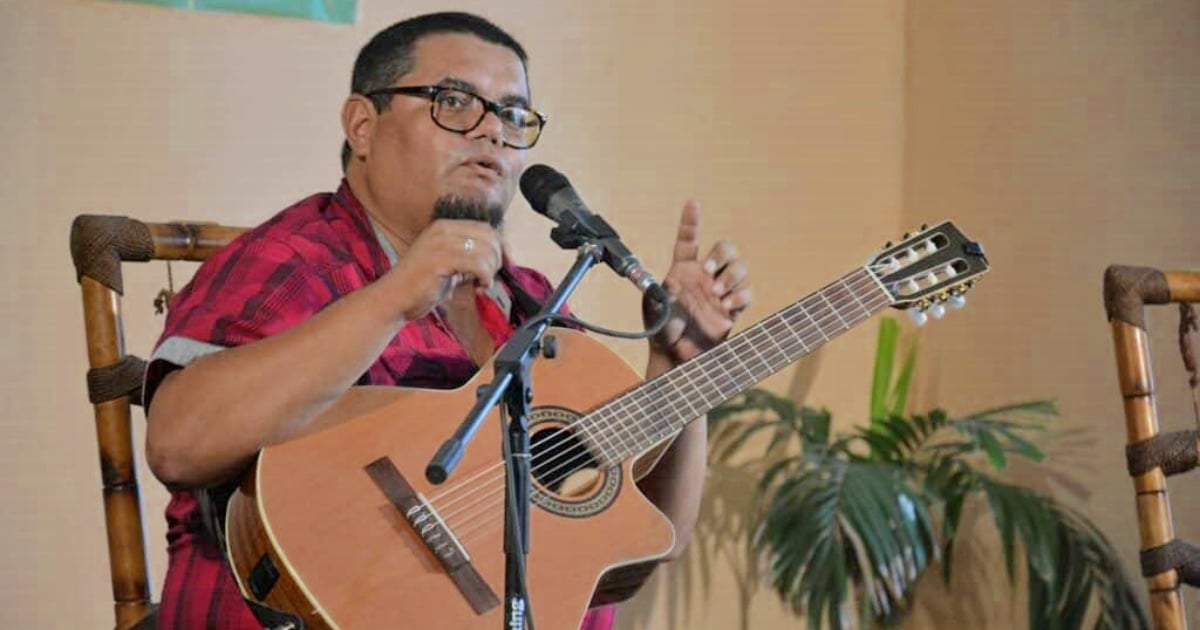Eduardo Sosa Laurencio, a beloved figure in Cuban music, passed away in the early hours of Wednesday, February 12, in Guantánamo. The 52-year-old died following complications from a hemorrhagic stroke he suffered on February 3, according to the Cuban Institute of Music (ICM). Since the incident, he had been in critical condition at the Dr. Antonio Agostinho Neto General Teaching Hospital in Guantánamo.
A Lifelong Dedication to Trova
Born on April 18, 1972, in Tumba Siete, Mayarí Arriba, Santiago de Cuba, Eduardo Sosa immersed himself in the arts from the age of 12. His journey in music began at the Frank País García Higher Pedagogical Institute, where he earned a degree in Musical Education. Several competitions and events highlighted his early career, marking his entrance into the professional music scene.
In 1997, Sosa and Ernesto Rodríguez founded the duo Postrova, quickly gaining acclaim from critics and audiences alike. They recorded two albums with Caribe Productions and EMI Odeón Spain, and their music featured in the Cuban film "Las profecías de Amanda," directed by Pastor Vega.
By 2003, Sosa embarked on a solo career, becoming a prominent voice in contemporary Cuban trova. He released four albums and won the Cubadisco Award in 2017 for "Como si fueran mías," under the Colibrí label. His repertoire included iconic songs like "Mañanitas de montaña," "Retoño del monte," "El son de Contramaestre," and "A mí me gusta, compay." Additionally, he set José Martí's verses to music and offered memorable renditions of classics such as "La Bayamesa."
His Final Battle
On February 3, while participating in the Theatrical Crusade and the X Congress of the UNEAC in Guantánamo, Sosa suffered a massive stroke. Despite undergoing surgery, which doctors said "achieved its goal," his condition worsened due to respiratory complications and acute kidney failure, ultimately leading to his death.
Reactions to Eduardo Sosa's Untimely Death
The passing of Eduardo Sosa has sparked a wave of grief among his peers. Ernesto Rodríguez, his partner in Postrova, shared poignant memories of their challenging beginnings. He recalled, "We went to Havana, took the typical photo at the Capitol. We had nowhere to stay... We slept on the Malecón until Palomino found us shelter."
Rodríguez continued, "At Cubadisco, we sang for many amidst the noise until El Tosco noticed us... He brought directors from Caribean Production and musicians from NG la Banda, telling them, 'You need to hear this extraordinary duo.'"
Musical researcher Rosa Marquetti lamented on Facebook, "I mourn Eduardo Sosa's death, one of the most beautiful voices in Cuban song in recent years. It's painful how premature his departure is. My condolences to his family and friends."
Troubadour Heidi Igualada expressed her sorrow on social media, "RIP. Our brother has died! Such profound sadness! Fly high, Eduardo Sosa! Cuban trova is in mourning!" The Cuban Ministry of Culture also extended condolences, underscoring his enduring impact on Cuban music and culture.
During his hospitalization, the ICM and various media outlets provided updates on his condition, while artists and fans sent messages of support and hope.
In accordance with his family's wishes, Eduardo Sosa's body will be cremated. A tribute will be held at the cinema in his hometown of Mayarí, followed by a ceremony at the Casa de la Trova in Santiago de Cuba. His ashes will be interred at the Santa Ifigenia Cemetery, in the Path of the Troubadours, alongside legends like Pepe Sánchez and Compay Segundo.
Understanding Eduardo Sosa's Legacy
What was Eduardo Sosa known for in Cuban music?
Eduardo Sosa was renowned as a key figure in contemporary Cuban trova, known for his solo work and as part of the duo Postrova. He was celebrated for his contributions to Cuban music and his memorable renditions of classic songs.
What were some of Eduardo Sosa's notable achievements?
Sosa's career highlights include founding the duo Postrova, releasing four solo albums, and winning the Cubadisco Award in 2017. He was also recognized for his unique adaptations of José Martí's work and his leadership in the International Trova Festival in Santiago de Cuba.
